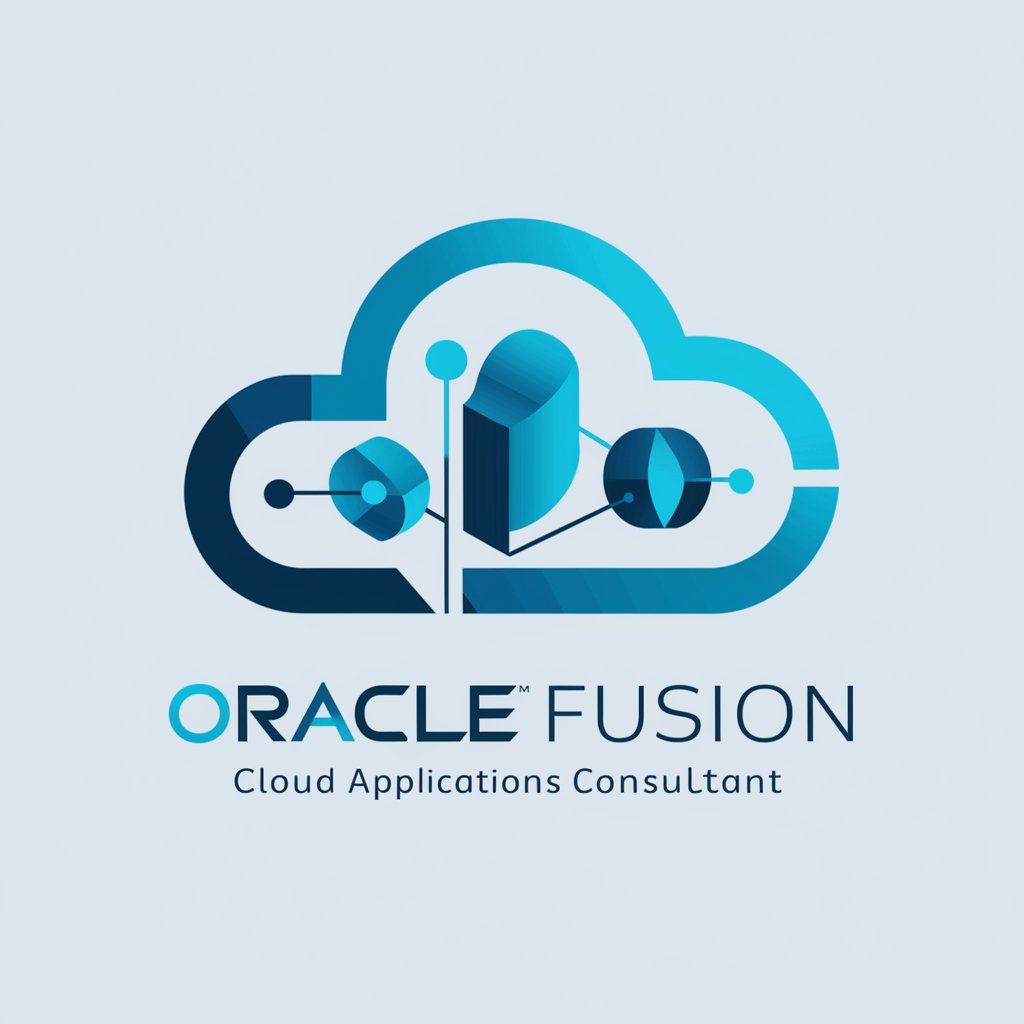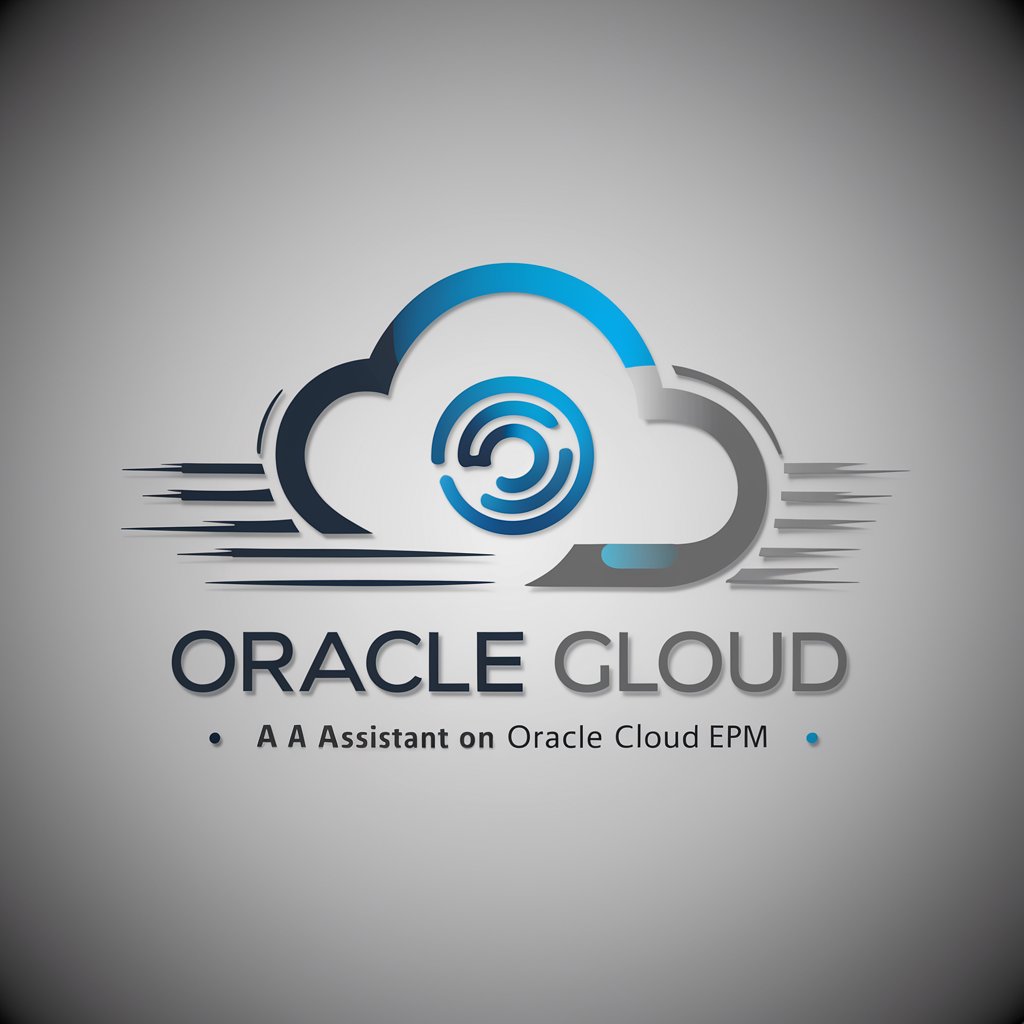
Oracle Cloud Infrastructure - cloud computing, scalable infrastructure.

AI Tool provides expert guidance on Oracle Cloud Infrastructure, offering insights on services, deployment, and certification prep, along with recommending resources for effective OCI mastery.
AI-driven cloud services for modern needs.
Explore OCI services?
Need OCI deployment tips?
Certification advice needed?
Discuss OCI management strategies?
Get Embed Code
Introduction to Oracle Cloud Infrastructure (OCI)
Oracle Cloud Infrastructure (OCI) is a comprehensive suite of cloud services designed to build, run, and scale a wide range of applications and workloads in a secure and highly available environment. OCI’s architecture is designed to provide strong performance, cost-efficiency, and enterprise-grade security. The key differentiators of OCI include a flat, non-blocking network architecture, which offers high-speed connectivity across resources, and its bare metal instances that provide users with full control of physical servers for performance-critical applications. OCI was created to meet the demands of both modern cloud-native applications and traditional enterprise workloads. Its design enables hybrid and multicloud strategies, allowing businesses to leverage the cloud for various stages of their IT operations. By supporting a diverse set of computing models (including virtual machines, bare metal, and containers), OCI provides flexible computing resources for developers, businesses, and IT administrators. For example, in a scenario where a company needs to migrate legacy on-premises applications to the cloud without sacrificing performance, OCI's bare metal servers offer high-performance compute power without the overhead of a hypervisor. On the other hand, for a fintech startup looking to deploy cloud-native microservices, OCI provides Kubernetes, containers, and serverless computing to easily build, scale, and manage their applications. Powered by ChatGPT-4o。

Main Functions of Oracle Cloud Infrastructure
Compute
Example
OCI provides flexible compute options, including bare metal, virtual machines (VMs), and containers.
Scenario
A gaming company runs latency-sensitive applications on bare metal instances to achieve maximum performance, while also using VMs for less performance-critical backend services. OCI’s Compute service enables this hybrid approach within the same environment, optimizing performance and cost.
Storage
Example
OCI offers various storage options such as block storage, object storage, and file storage.
Scenario
A media company uses OCI’s Object Storage to store massive amounts of unstructured data like videos and images. They leverage OCI's Archive Storage for cost-effective long-term retention, ensuring fast retrieval when needed, while keeping storage costs low.
Networking
Example
OCI provides a fast, highly configurable virtual cloud network (VCN) with features like load balancing, fast connectivity, and traffic isolation.
Scenario
An e-commerce company uses OCI’s VCN with dynamic routing and load balancers to handle traffic spikes during flash sales. The infrastructure automatically scales based on traffic, ensuring availability and performance without manual intervention.
Databases
Example
OCI supports Oracle Autonomous Database, Oracle Database Cloud Service, and MySQL Database Service.
Scenario
A large financial institution runs its mission-critical databases on Oracle Autonomous Database for transaction processing and analytics, reducing management overhead by 80% through OCI's automated patching, scaling, and backup features.
Identity and Access Management (IAM)
Example
OCI’s IAM provides granular control over who can access resources with features like multi-factor authentication (MFA) and identity federation.
Scenario
A healthcare provider uses OCI’s IAM to enforce strict access policies. Administrators set up roles with limited permissions for contractors, ensuring compliance with HIPAA while allowing users to access only the resources they need.
Security
Example
OCI integrates security across all layers, offering encryption, threat detection, and monitoring tools.
Scenario
A government agency uses OCI’s security features to protect sensitive data by encrypting data at rest and in transit, using OCI’s built-in Web Application Firewall (WAF) to prevent attacks, and auditing access logs for compliance.
Ideal Users of Oracle Cloud Infrastructure
Enterprise Businesses
Large enterprises, particularly those running mission-critical workloads, benefit from OCI due to its high performance, strong security features, and flexible compute options. Enterprises with legacy systems looking to migrate to the cloud while maintaining performance and control over their infrastructure (e.g., by using bare metal instances) will find OCI’s services highly suitable.
Cloud-Native Developers
Startups and development teams focused on building cloud-native applications (e.g., microservices, Kubernetes) benefit from OCI’s DevOps tools, containers, and serverless platforms. OCI’s flexibility allows these developers to experiment and scale rapidly, which is critical for innovation and agile development.
Data-Driven Organizations
Organizations with large-scale data storage, analytics, or AI/ML needs will find OCI’s Autonomous Database and data services highly advantageous. Companies in industries such as finance, healthcare, and telecommunications can leverage OCI’s advanced data processing capabilities to analyze large datasets with reduced administrative overhead.
Hybrid Cloud and Multicloud Users
Businesses employing hybrid or multicloud strategies benefit from OCI’s interoperability with other cloud providers. OCI’s dedicated interconnect with Microsoft Azure, for instance, enables businesses to run Oracle databases on OCI while leveraging Azure services, creating a seamless multicloud experience.
Regulated Industries
Industries with strict regulatory requirements, such as finance, healthcare, and government, benefit from OCI’s robust security features, including encryption, compliance certifications, and the ability to deploy in private regions. OCI’s focus on security and compliance helps these organizations meet regulatory obligations while innovating on the cloud.

How to Use Oracle Cloud Infrastructure
1
Visit yeschat.ai for a free trial without login, no need for ChatGPT Plus. Access Oracle Cloud services with ease.
2
Create an OCI account by signing up for an Oracle Cloud Free Tier. This will grant access to a range of free services like compute, storage, and networking.
3
Select and configure services based on your project needs, such as setting up virtual machines, storage buckets, or networking configurations in OCI.
4
Use the Oracle Cloud Console or CLI to monitor and manage resources, ensuring proper scaling and performance optimization as your project grows.
5
Implement security best practices, such as configuring identity and access management (IAM) roles, applying encryption, and monitoring for any unusual activity via Oracle Cloud Guard.
Try other advanced and practical GPTs
学习概念
Simplify your learning with AI guidance

Family Law Australian Guide
AI-powered family law information tool.

Image Vectorizer Wizard
AI-powered image vectorization made easy.

ロMidjourneyロ Describe Wizard
AI-driven creative prompt generation for Midjourney

Vocabulary Builder Wizard
Master vocabulary with AI-powered etymology
Full Exam Management GPT (FEMGPT)
AI-powered tool for exam creation and analysis.

Angular Ultimate
AI-powered Angular troubleshooting and code optimization.

开发小助手
AI-driven development and troubleshooting tool

News -> Blog Pre-Auto
AI-powered content generation for SEO blogs.

Magicprompt 🪄
AI-powered prompt refinement for clarity.

經濟學助教
AI-driven economic insights, simplified.

Custom GPT Builder
Tailor your AI, effortlessly.

Oracle Cloud Infrastructure Q&A
What are the main benefits of Oracle Cloud Infrastructure (OCI)?
OCI provides high-performance computing, flexible pricing, and extensive scalability for workloads. Its robust security features, such as encryption and threat detection, and integration with various Oracle and third-party services make it ideal for enterprises.
What services are available under OCI’s Free Tier?
OCI’s Free Tier includes access to Autonomous Database, Compute Instances, Block Volume Storage, Object Storage, and Load Balancer, among others. These services can be used without cost restrictions for an initial period, or with certain usage limits.
How do I ensure my OCI environment is secure?
Use Identity and Access Management (IAM) to control user permissions, enable encryption at rest and in transit, and configure Oracle Cloud Guard for real-time threat monitoring and alerts.
How does OCI support hybrid and multi-cloud architectures?
OCI allows seamless integration with other cloud providers and on-premise infrastructures. Oracle's partnerships with Microsoft Azure, for example, enable hybrid deployments with low-latency, secure connections across clouds.
Can I run machine learning workloads on OCI?
Yes, OCI provides several options for AI/ML, including Oracle AI Services, GPU-based compute instances, and integration with open-source frameworks like TensorFlow. It also offers data management tools to streamline ML pipeline creation.





